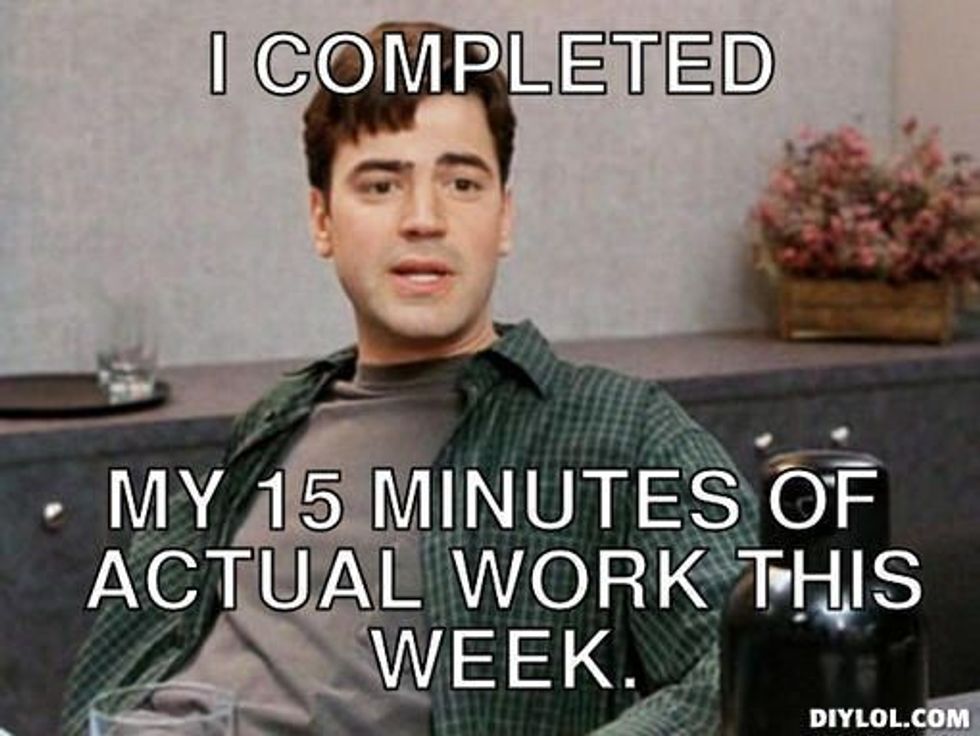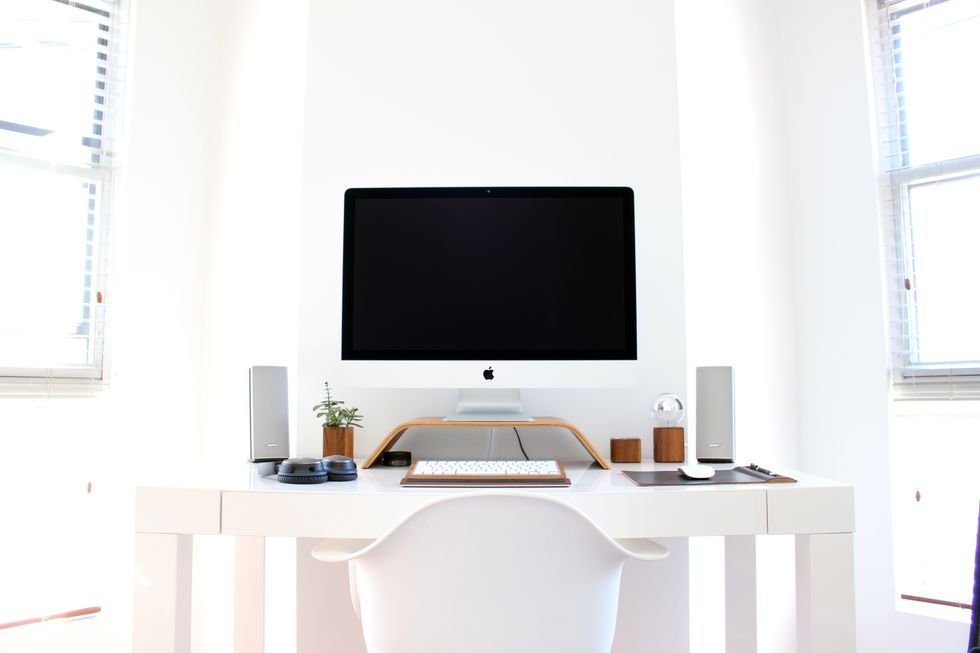October 2016 marked one year of working from home for me. Before that, my 20s were spent in a have-to-be-there-even-on-Thanksgiving news station and a clock-watching ad agency. Now, people ask me all the time: How do I like working from home, and how do I do it?
I love it, I never want to go back, and it's a lot easier. If you don't feel comfortable working from home at least some of the time, take 2017 to get more used to it.
I know not everyone can do that. I'm lucky to work at RebelMouse, a startup with employees all over the world that thrives on being global. So many more companies are joining us. In fact, 50% of the U.S. workforce in 2016 holds a job that is compatible with at least partial remote flexibility, and 20–25% of the workforce teleworks at some frequency, according to Global Workplace Analytics.
Side note: If you don't work at a place that can do this, you guys are the real MVPs. (Shout-out to doctors, nurses, teachers, waiters...)
This year, I was surprised by how many people I met who said, "Gosh, you work from home! I could never do that." People are worried about isolation and productivity, mostly. But what I learned is that working from home gives you both of those back. Here's why:
Results, Not Regulation
All year long, I've tried to articulate why working from home is actually more productive. Software engineer Yan Lhert summed it up perfectly in this Medium article. The case for results-based work puts an emphasis on success rather than boundaries that can easily let "bad actors" reign.
Here's what Lhert means:
"Bad actors in an organization will figure out what the rules and the process are and follow them to a letter. Then they'll find a way to slack off within these boundaries. Just as a hypothetical example, let's look at working hours. Let's say the company makes a new rule: "you have to be in the office from 9am to 7pm." The bad actor will be at the office from 9am to 7pm. They might be on Facebook half of the day, but you didn't make a rule against that, right? When it comes to performance review time, this bad actor can say "I followed all the rules & process! I was here from 9am to 7pm every day!"
You know you've worked with these bad actors all your life. You may have even been a bad actor once or twice. But nobody is a hero in an office setting. Nobody sits down at their desk and works at 100% productivity, stopping only for a sensible one-hour lunch. When I worked in an office, there were days I spent my most of my time gabbing with coworkers, refreshing Facebook 100 times, and reading Wikipedia stories that could haunt your dreams.
I wasn't a bad actor, but I was held to standards not conducive to productivity. Now I work in a space created all by me, wherever it is, and I can deliver results. It's those results I am measured on, not how many days in a row I can sit in a chair for 8 to 9 hours.

What It Means for Your Life Outside of Work
This is perhaps the most important. Employees deserve to work in a place that makes them peaceful, not a place that breeds dread and stress. For many, this means actually working from home — a place where they can pause to switch over to the laundry, take their child to a doctor's appointment, or just catch up on a show for a brain break.
Ben Brooks is the CMO at MartianCraft, an entirely remote company. To him and many of his coworkers, working from home is about being there: "It is about your loved ones — your spouse, kids, pets — being the small daily interruptions, and not Milton complaining about his stapler."
For me, working remotely this year meant I could be a halfway, wannabe digital nomad. I kept my home base in Austin, but was free to travel and work wherever I wanted. I found myself reaching levels of productivity from everywhere to a hotel lobby in Silicon Valley to a cafe in Lucerne, Switzerland.

Experiencing freedom is life changing, no matter what your perfect workplace looks like. Aside from the opportunities to travel, which I treasure and pinch myself over that it's even possible at times, perhaps I am more grateful for the freedom to be myself. Just a few things I've been liberated from over the past year:
I've been free of workplace politics, from failed workout routines and unhealthy lunches, from exhaustion, from daily work outfits, from makeup, and from perfect hair. Free from feeling like I need to be a hero by sitting at a desk with a cold, from trying to compartmentalize problems to put on a brave face for the day, from stressing out about what my boss thinks I am doing, and free from pettiness. I work at my best, I relax at my best, and, in turn, I am a better person to the people around me.
That's why working from home for me is about health, not just convenience. Productivity and employee retention is just an added bonus.
You Should Be OK with It Too
What does your own office look like for you? If it makes you feel uncomfortable, think about why. If it's because you're a social person, maybe figure out a way to be social and work from home. I promise you, the freedom is worth it.
Employees who aren't self employed that work from home has inflated 103% since 2005, and it's only going to grow. It will soon not just be for tech, or niche communities, but rather a skill for your resume.
Might as well start now.

